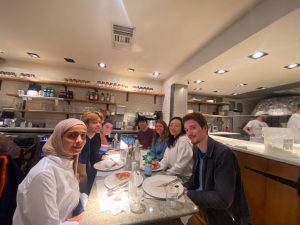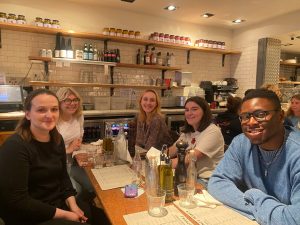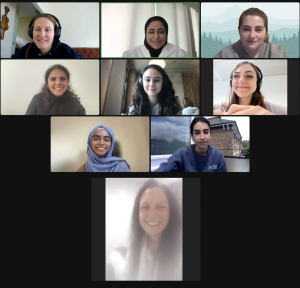The team
Department
What happened?




Division of Psychiatry

Students: Nancy Yang, Maurane Gisiger, Nasko Stefanov, Patrycja Lakomiec.
Staff: Prof. Giorgio Savini, Dr. Steve Fossey.
Physics and Astronomy
MPhil/Phd Student – Reem Ben Giaber: Co-lead Doctoral Candidate – Nidal Al Haj Sleiman: Co-lead Doctoral Candidate – Jumana Al-Waeli: Co-Lead Staff Partner – Professor Eleanor Hargreaves: Staff Partner at Department of Curriculum, Pedagogy and Assessment (IOE)
The SWANA Forum for Social Justice has emerged out of a perceived need for a community of scholars from South West Asia and North Africa (SWANA) region interested in education and social justice. With a specific focus on the SWANA region, members would be aware of the similarities and differences between countries in this vast geographical area (often too reductively and easily lumped together) and speak about/from specific countries to draw out practical opportunities for positive change in context. The co-founders of SWANA-FSJ find that one of the most exciting parts of this ongoing project is developing a monthly Webinar Series where two Guest Speakers from or working in the region present their thoughts and research on issues of social justice and education in the region. The Webinar Series hosts a range of scholars, practitioners and activists which draws in UCL students from a range of faculties and degree levels. One of the aims of the Webinar Series is to encourage aspiring academics from the SWANA region at UCL and beyond to find a community of shared interests – a place that values their voice and visibility in such an effort. SWANA-FSJ also organised a Focus Group discussion with UCL students to evaluate the need for such a Forum and the value of our activities. The findings where both encouraging and thought-provoking when the main themes from this discussion where issues of belonging, visibility of minorities in a big university like UCL and the importance of finding and building community action and solidarity – we have work to do.
SWANA FSJ Flyer_Reem Ben Giaber